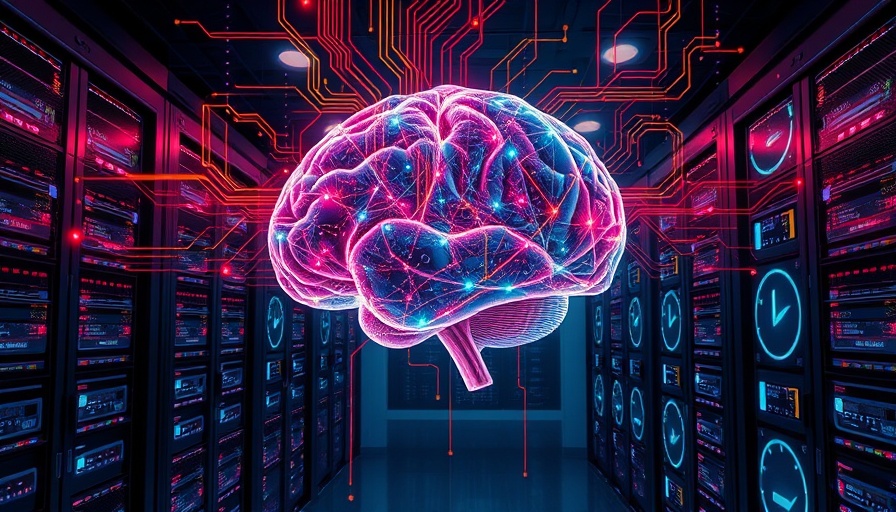
The Evolution of AI: From Information Retrieval to Reasoning
Artificial Intelligence (AI) has undergone a remarkable transformation in recent years. Initially focused on information retrieval, AI is now evolving towards what experts call 'deep reasoning AI.' This shift is characterized by the capability to perform complex cognitive tasks in real-time rather than merely responding based on pre-trained data.
Understanding Deep Reasoning AI
Deep reasoning AI is not just about fast responses or superficial patterns. Instead, these systems aim at 'System 2' thinking, meaning they evaluate and reason through decisions much like humans do. Unlike traditional AI models that generate quick answers based on past data, deep reasoning AI engages in a more thoughtful process. For instance, OpenAI's recent advancements have led us to models that pause to consider their responses, a departure from merely rattling off predictions.
Historical Context: The Journey of AI
The journey of AI began with simple tasks focusing on information retrieval, processing vast amounts of data to provide relevant responses quickly. Early AI models mimicked human behavior through extensive training on datasets, which served as the foundation for their patterns. However, as AI garnered attention, a shift became apparent—researchers began to emphasize the importance of reasoning, leading to the development of 'agentic applications,' which require deeper cognitive capabilities.
Emergence of Agentic Applications
A wave of innovative applications born from deep reasoning AI is taking the forefront, dramatically reshaping various sectors. Companies are unveiling tools like AI lawyers, work assistants, and customer support agents that can think independently and reason through complex tasks. These tools not only showcase the power of AI but also emphasize the potential for automation in the workforce, challenging our traditional views of job roles.
Challenges and Opportunities in AI Development
As the landscape evolves, the challenges surrounding AI development intensify. The integration of reasoning capabilities requires significant resources and expertise. While notable advancements like those observed in generative AI are significant, the question remains: how can companies successfully implement these sophisticated systems? Undoubtedly, the ongoing race between tech giants like OpenAI, Anthropic, Google, and Meta underscores the competitive nature of AI development.
Societal Implications of Deep Reasoning AI
The implications of transitioning to deep reasoning AI cannot be overstated. Researchers predict that AI's role in society will expand beyond mere assistance to an integral part of decision-making processes in businesses and personal lives. Consequently, this evolution calls for robust frameworks to address potential ethical dilemmas, accountability, and bias in decision-making systems.
What Lies Ahead for AI?
As researchers continue to push boundaries, the focus will increasingly turn to shaping how AI interacts with users in practical scenarios. The introduction of cognitive architectures—designs that dictate how systems process tasks—will be pivotal. As companies build custom-tailored AI solutions to specific problems, the marketplace may witness a shift in how organizations adapt to AI technologies, making tailored applications the next frontier.
Actionable Insights for the Future
Organizations looking to adopt deep reasoning AI must invest in understanding its capabilities and limits. By doing so, they will better prepare for potential disruptions in their industries and workforce. Emphasizing a framework for ethical AI will be paramount to ensure that these systems enhance rather than hinder human potential.
Conclusion: The Future of Reasoning AI
The transition to deep reasoning AI signifies a major leap from mere information retrieval to profound cognitive engagement. As this technology matures, businesses across sectors will need to harness its capabilities to maintain competitive advantages. Companies must be proactive in addressing the associated risks while capitalizing on the promising opportunities AI presents. For those on the frontier of technology adoption, staying informed and adaptable is essential.
 Add Row
Add Row  Add
Add 




 Add Row
Add Row  Add
Add 

Write A Comment